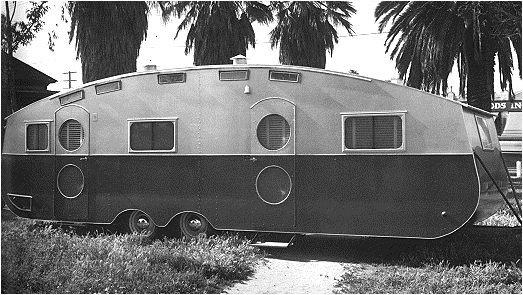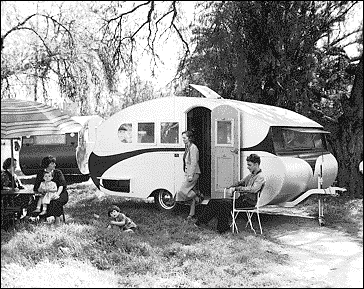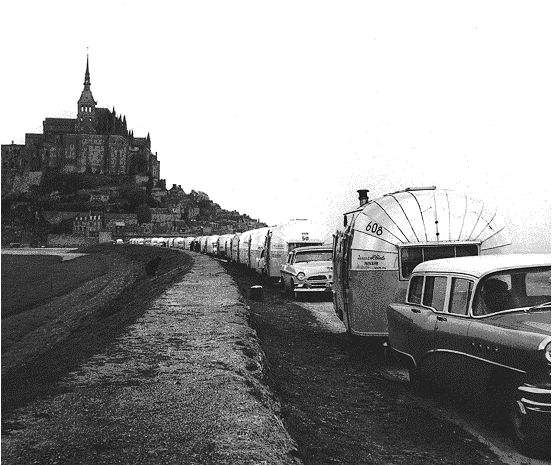Enough
And Time
The Life of
Andrew Marvell
Nicholas Murray
(St. Martin's)
 If you have never read "To His Coy Mistress" by Andrew Marvell, drop what you're doing right now (reading this scurrilous review) and go to the poem. For those of us who had to yawn our way through English Lit classes so many years ago --- Wordsworth, Milton, and Spenser --- it was an eye-opener: a poet who actually worried about getting laid. One, further, who used The Eternal as his best argument: you may hang onto your virtue, dear --- but in a few years, your maidenhead will be but dust in the tomb. "Had we but world enough and time," this don't-
If you have never read "To His Coy Mistress" by Andrew Marvell, drop what you're doing right now (reading this scurrilous review) and go to the poem. For those of us who had to yawn our way through English Lit classes so many years ago --- Wordsworth, Milton, and Spenser --- it was an eye-opener: a poet who actually worried about getting laid. One, further, who used The Eternal as his best argument: you may hang onto your virtue, dear --- but in a few years, your maidenhead will be but dust in the tomb. "Had we but world enough and time," this don't-By merging time and lust Marvell was evoking a modern trope, moving as far as possible away from the creed of those drab Puritans who dominated 17th Century England. And not unlike those of us who grew up under the nuclear shadow (the modern equivalent of his age's Black Death) such petty restraint, my love, might well be next to useless.
My own readings over the years have led me to the conclusion that the English poets worth bothering with can be counted on one hand. Marvell, Chaucer and Donne, naturally. Keats, of course. Tennyson --- early Tennyson, that is --- by all means.
On the other hand, there are others like ... Shakespeare. I ask you, who wants to spend one's life deciphering those occlusive iambs? Furthermore, do you really want to spend the evening with the likes of Lady Macbeth, Lear, Hamlet, or, god forbid, Pericles, Julius Caesar or Timon of Athens?
Frank Kermode, who should know, being he is one of the best and most literate experts on Shakespeare we have going (and one who writes like a dream), claims that some of Shakespeare's lines are impossible to translate or be understood, no matter how hard we try. It is that when he was writing, he explains, Shakespeare got so carried away with his tricks, mirrors, fireworks and wordsmithing that he forgot one thing: how to make his thoughts understandable to the hapless playgoer.
Nicholas Murray studied at Liverpool University so he could have become a Beatle but, instead, he chose to write books about Matthew Arnold, Bruce Chatwin, and Andrew Marvell. He is, if you will pardon the expression, a geeky scribe. He gets all the facts in there, but as a stylist, he could have learned a few things by studying the poetry of John Lennon, much less Marvell. We get shopping lists of The Long Parliament, the Short Parliament, or the Rump Parliament (where, presumably, they passed laws concerning the grading of beef or 17th Century sexual harassment) but for those of us who can't tell Cromwell from Charles I, with or without head, for those of us who could never differentiate between a Cavalier and a Puritan --- his historical references are less than meaningless.
Even worse, the available documentation on Marvell has mostly to do with his years in Parliament, but most of what we are shown is that he was a particularly slippery customer, one who was able to survive the dicey politics of the years of Cromwell and, as well, Restoration England. This nonsense has very little to do with Marvell's poetry.
For example, it strikes us that Murray has no more idea than the man in the moon when "To His Coy Mistress" was composed, and his rambling speculations on to whom it was addressed ("There could well have been no mistress at all") evoke our favorite high-school raspberry: "Duh!" Further, his gloss of what he calls "one of the great canonical poems in the English poetic tradition" is simply boorish:
The language of the poem is smoothly flowing and witty. "My vegetable Love should grow/Vaster than empires, and more slow" is a surprising but nonetheless effective image of the leisurely, incremental growth of a relationship, although some scholars have rebuked the common reader for assuming that this is a culinary rather than a Metaphysical term...
I stopped counting the number of times that he pulled out the word "perhaps;" and it was continually frustrating to have to read, "It is frustrating not to know more of the private life of the bachelor poet-politician at this time of his life."
The only positive thing to come out of this morass of vague speculation and hideous Lit-Speak was a fantasy (not his but our own) wondering what would it be like to have someone in the current U. S. Congress who would have the wit if not the nuts to write the likes of "To His Coy Mistress."
He'd get my vote on a bed. (Good grief! I meant to write, "He'd get my vote on a bet." But let's let it stand.)
To Say
Something
Manifesting
Zen Insight
Dainin Katagiri
Steve Hagen, Editor
(Shambhala)
What is there to say about Buddha-nature? Nothing. The same is true of whatever aspect of human life you pick up: finally there is nothing to say.
In this essay, Katagiri then gives us the following koan:
A monk once asked his master, "What is the essence of Buddhism?" The master said, "Step forward from the top of a hundred-foot pole."
Get it? Of course not. That's Zen for you. You don't get it by getting it. And if you try, you lose. You can fly, if you want to. But if you want to, you can't do it. Then,
"What is this silence? How can I speak of it? Do I just keep my mouth shut?"
No, says the master:
Silence --- Buddha nature--- is not something apart from your life. It compels you to speak. That is why the Zen master had to speak. He had to say something. He had to speak from that silence --- from Buddha-nature.
We here have the paradox (yet another paradox!) of a religion that values silence --- after all, that is what meditation is all about; but, at the same time, someone has to speak up. You have to say something. That "you" is, presumably, Katagiri, telling us the essence of Zen. To wit, greed, hatred and ignorance run us, lead to misery. Everything changes. You and I are already Buddhas. When we become enlightened, the whole world will be enlightened but, unfortunately, we see our ideas of things, not the thing itself.
These are the commonalties of Zen, and if one is trying to pick up on the paradoxes of the religion, I guess You Have to Say Something will do. Those who like a little more pickleweed in our Buddhism will find Karagiri very pedestrian. His words are simple, and his teachings are either commonplaces, or baffling:
In Buddhism the Sanskrit term Dharma has three meanings: the ultimate principle of existence, the phenomena of experience, and the teaching about the nature of things. These three meanings work together.
Unh...well, OK. When he becomes specific --- on death, for instance --- he makes more sense. The dying, he tells us,
reach a stage where they completely give up. They realize that there is no solution and there is nothing to grasp. Within the realm of resignation, their consciousness still vibrates minutely with deep human suffering....
Katagiri died in 1990.
The History of
The Land Yacht
Bryan Burkhart and
David Hunt
(Chronicle Books)

I haunted the trailer stores, learned about 12 volt systems, Shur-flow pumps, city-water and black-water holding tanks, towing weight, three-way refrigeration systems, and cooking with butane gas. I learned about trailer brakes vs. car brakes, sway bars, handling on the road, and experimented with the trickiest operation in the universe: backing car and trailer into a stall. I learned from this last that we can put a man on the moon, and genetically engineer food --- but that there is no safe way to back a trailer up without giving the driver heart-failure. (I mangled much of the right, or starboard, side of my new used Land Yacht on my second day on the road trying to maneuver out of a gas station in Bisbee, Arizona).
Since then I have owned a variety of trailers --- tent-trailers, fifth-wheels, toy haulers, HiLos, and what I consider the best of them all --- a 12-footer that was no more than a bed on wheels. But, over the years, I have never bought another Air Stream. Despite the sleek metal look, and the imprimatur of Brand --- they are well designed to drive the owner crazy. All that chrome doesn't weather well unless you are willing to spend a life-time polishing it. That sleek Moderne rounded look means that you lose valuable storage space in the upper shelves and at the front and back. And --- something I've never read in any Airstream literature --- if there is anything goofy in your electrical wiring, either within or without, the goddamn thing shocks the hell out of you when you go to unlock the door. As one mechanic said to me while he was trying to replace the important 12 volt pump --- "I dunno," he said" "Airstream always seems to put things in places so that they are a pain in the butt to service."
 There's a great deal of cant about the Airstream and its founder, Wally Byam. The History of the Land Yacht is a 150 page encomium to the two of them, rich with photographs and drawings and reproductions of ads. Byam started off in the 20s designing trailer kits: you'd buy the plans and build your own. (Some of the most interesting photos are those home-made ones from the time before Wally got into the assembly line business). At all times, Byam had a hell of a good sense of publicity. After WWII, Airstream owners, in cooperation with the company, started setting up Caravans. Owners of the trailers would come together to go someplace else, the more unlikely the better. The book is filled with photographs of a host of shiny carapaces, tooling past the Pyramids, or in front of Mont-St. Michel, or invading South America, Africa, Russia, the Far East. As one of my friends from Point Barrow, Alaska once reported, "It was like a plague of locusts when the Airstreamers came to town. They cleaned out every store in town."
There's a great deal of cant about the Airstream and its founder, Wally Byam. The History of the Land Yacht is a 150 page encomium to the two of them, rich with photographs and drawings and reproductions of ads. Byam started off in the 20s designing trailer kits: you'd buy the plans and build your own. (Some of the most interesting photos are those home-made ones from the time before Wally got into the assembly line business). At all times, Byam had a hell of a good sense of publicity. After WWII, Airstream owners, in cooperation with the company, started setting up Caravans. Owners of the trailers would come together to go someplace else, the more unlikely the better. The book is filled with photographs of a host of shiny carapaces, tooling past the Pyramids, or in front of Mont-St. Michel, or invading South America, Africa, Russia, the Far East. As one of my friends from Point Barrow, Alaska once reported, "It was like a plague of locusts when the Airstreamers came to town. They cleaned out every store in town."
The founder is pictured as a wonderful, self-made eccentric, with his "Wally Byam Creed," a bizarre mix of the Bible and 1930s Hollywood romanticism: In the heart of these words is an entire life's dream. To those of you who find in the promise of these words your promise, I bequest this creed...my dream belongs to you:
- To lead caravans wherever the four winds blow...over twinkling boulevards, across trackless deserts...to the traveled and untraveled corners of the earth.
- To refine and perfect our product by continuous travel-testing over the highways and byways of the world.
- To strive endlessly to stir the venturesome spirit that moves you to follow a rainbow to its end...and thus make your travel dreams come true.
Byam unfortunately had this thing for unseemly political figures who greeted him and his ardent followers on his journeys --- the white leadership in South Africa and in Rhodesia, Haile Selassie of Ethopia, Fulencio Batista of Cuba. These pictures of the Airstreams in perfect formation on the road, or parked in perfect circles, surrounding Wally in pith helmet and folding camp chair with microphone in hand lecturing to the faithful makes us think it might be another circle of hell to have journeyed with Wally and Mr. & Mrs. Normal American on, for example, the eight month Caravan from Cape Town to Cairo in 1959. Somehow they did it, somehow they survived --- and Airstream, too, is still around, driving people bananas.
